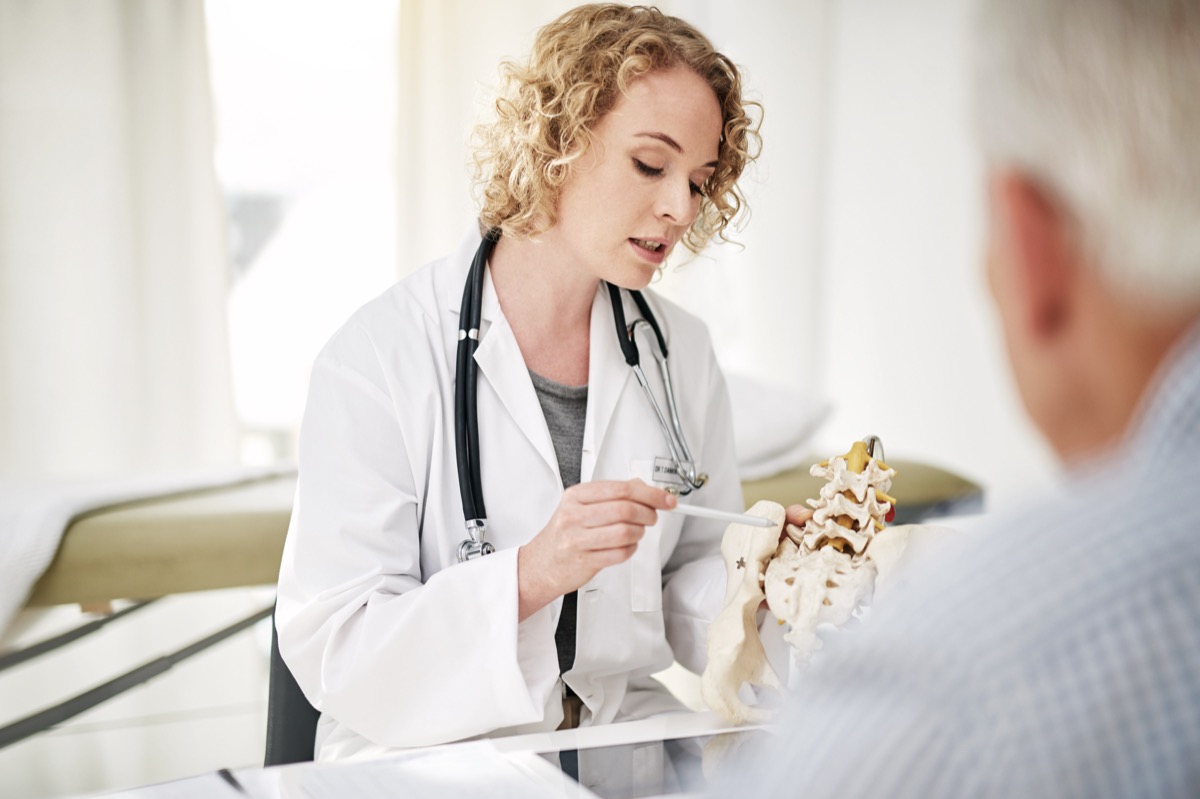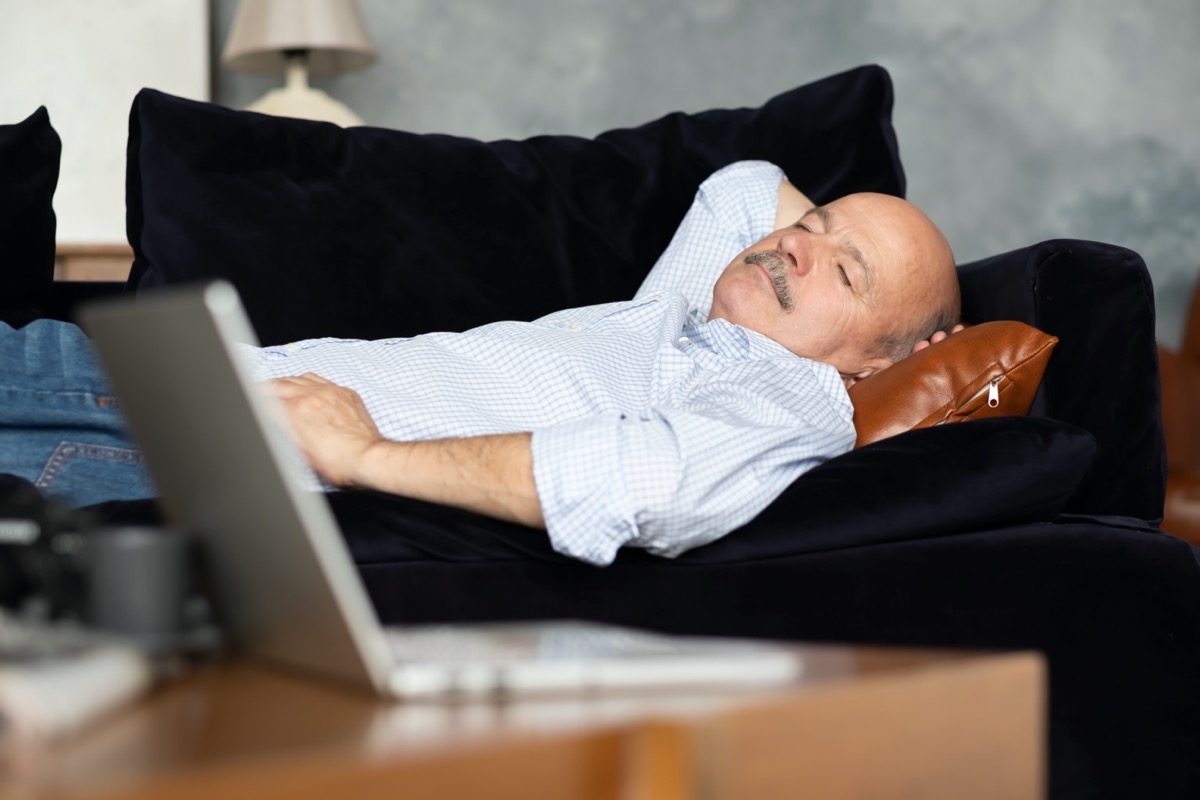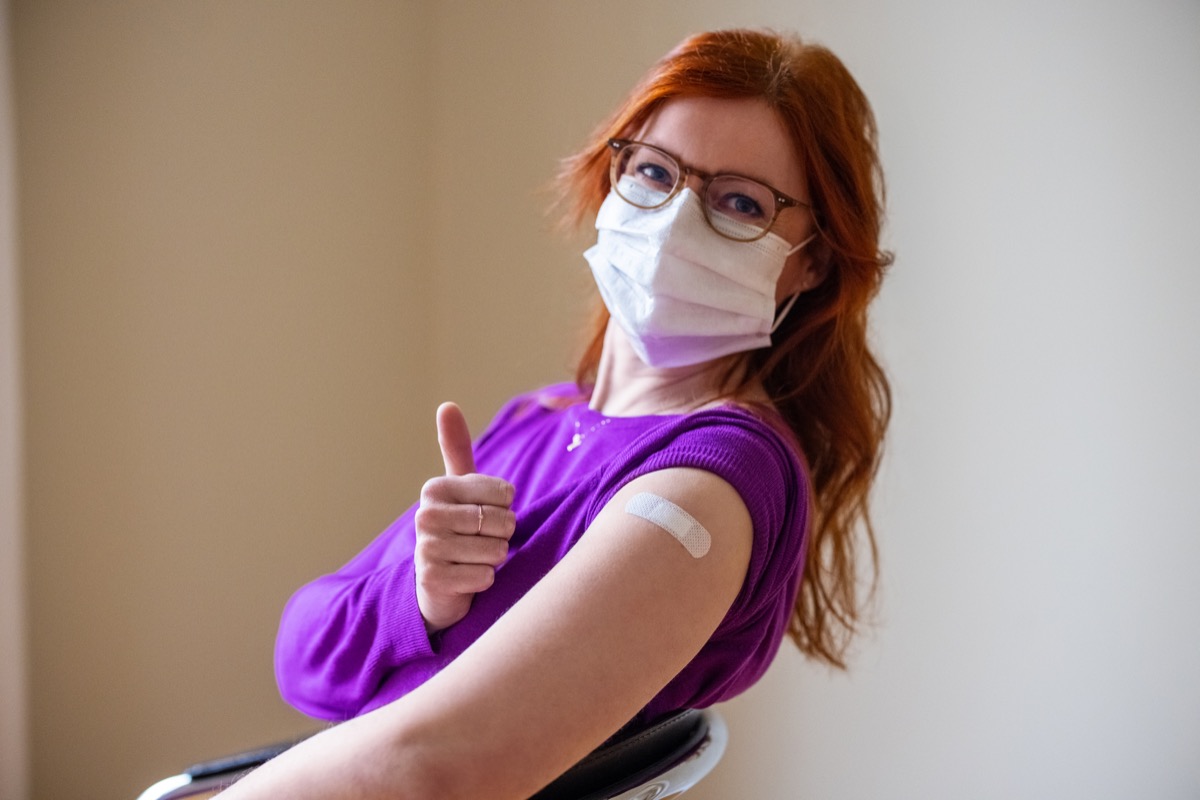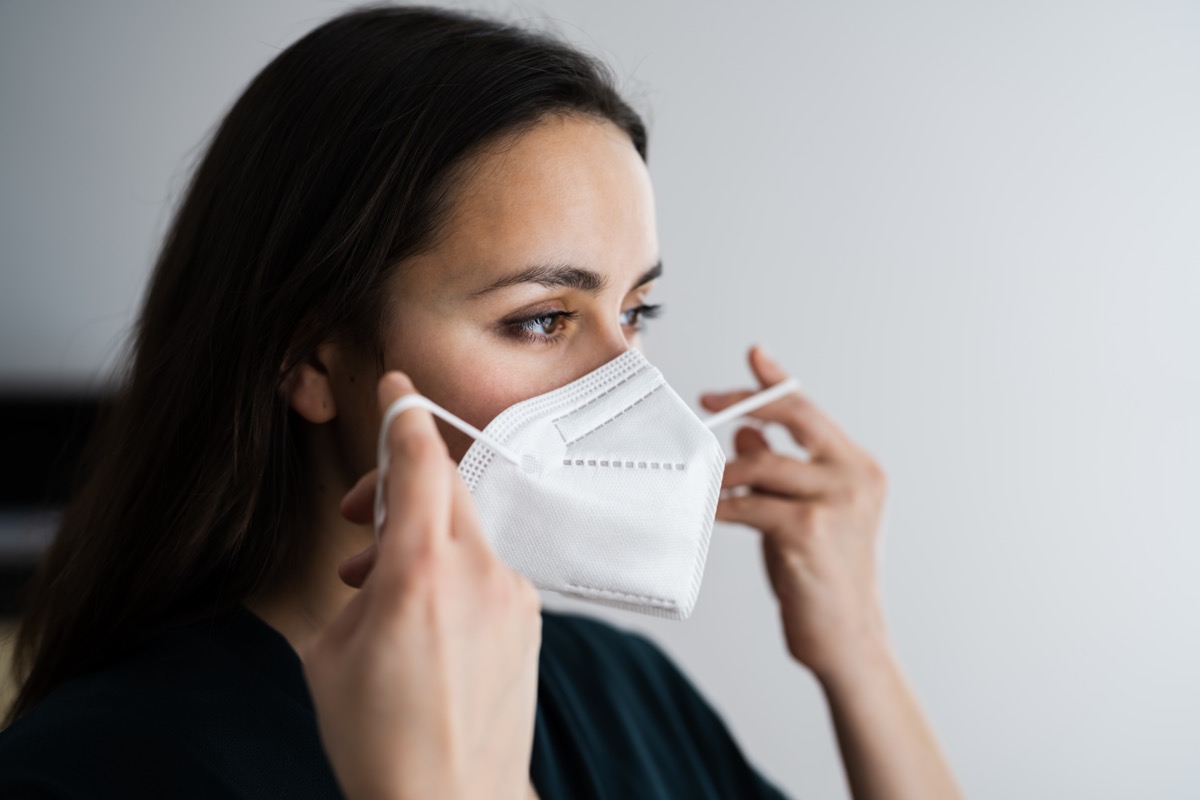When it comes to healthy aging, consistent habits and a positive attitude are key. "My research shows that positive beliefs about aging can act as a buffer against stress, bolster your sense of control over your life and even your will to live, and motivate good habits," says Becca Levy, PhD, professor of epidemiology at the Yale School of Public Health. Here are five mistakes never to make after age 55, according to experts. Read on—and to ensure your health and the health of others, don't miss these Sure Signs You've Already Had COVID.
Belly fat—or visceral fat—is a particularly dangerous type of fat that can lead to serious health conditions such as type 2 diabetes and heart disease. It's important to keep on top of abdominal fat after 55, and in this case as in so many others, prevention is better than cure. "Belly fat robs us of confidence at any age," says fitness trainer Jorge Cruise. "But more than that, our waistline is our lifeline, particularly as we get older. You can have hip fat, butt fat and arm fat, and still be relatively healthy. But if you have belly fat, it will crush your health."
"The ideal approach involves addressing your overall lifestyle, including eating a balanced diet of whole, naturally fiber-rich foods, being regularly active, prioritizing sleep, not drinking excessively and managing stress," says Cynthia Sass, MPH, MA, RD, CSSD.

While bone density tends to stay fairly stable from age 25 to 50, bone loss accelerates after 50 and can lead to osteoporosis. "Most people know osteoporosis as a disease that causes fractures. Prior to that though, for a very long time, you can have osteoporosis and not even know it," says rheumatologist Chad Deal, MD. "It's basically what we call a micro architectural deterioration of bones. So, think of a skyscraper as it goes up with all these girders, and as time goes on in your bone, you're missing a few of those girders which creates weakness. The weakness gradually accumulates until you have a fracture. So it's really important for both men and women to get a test for osteoporosis prior to the fracture, because in most cases we can actually prevent the fracture if we know that the patient has either Osteopenia, which is a little bit not quite as bad as osteoporosis, in advance and use some of the drugs."

It's never too late to make exercise a priority, experts say. One study from Cleveland Clinic found high level exercise improved heart function for seniors over 50. "We were able to find that in people who performed high-intensity exercise, that it actually preserved the filling-function of the heart, more than it did in people who had moderate-intensity exercise or lower-intensity exercise," says Chete Eze-Nliam, M.D., MPH, of Cleveland Clinic. "As you start exercising, you start to build up your strength, and the body gets used to a level of exercise. After a while, you find out you'll be able to step it up a bit, and overall, the more you can do, the better, within the confines of the limitations that you may have. I always advise to first check with your doctor before starting an exercise regimen."

A longitudinal study of 268 Harvard sophomores over 80 years showed close relationships were the key to a thriving, happy old age—even more so than money or fame, researchers discovered. "When we gathered together everything we knew about them, about at age 50, it wasn't their middle-age cholesterol levels that predicted how they were going to grow old," says Robert Waldinger, psychiatrist at Massachusetts General Hospital and a professor of psychiatry at Harvard Medical School. "It was how satisfied they were in their relationships. The people who were the most satisfied in their relationships at age 50 were the healthiest at age 80."

If you're over 55 and eligible for a COVID-19 booster, take it—CDC Director Rochelle Walensky advises those 50 and older, especially with underlying medical conditions, to be fully up to date. "This is especially important for those 65 and older and those 50 and older with underlying medical conditions that increase their risk for severe disease from COVID-19 as they are the most likely to benefit from receiving an additional booster dose at this time," Dr. Walensky says.

Follow the public health fundamentals and help end this pandemic, no matter where you live—get vaccinated or boosted ASAP; if you live in an area with low vaccination rates, wear an N95 face mask, don't travel, social distance, avoid large crowds, don't go indoors with people you're not sheltering with (especially in bars), practice good hand hygiene, and to protect your life and the lives of others, don't visit any of these 35 Places You're Most Likely to Catch COVID.
The post Never Make This One Mistake After Age 55, Experts Warn appeared first on Eat This Not That.
----------------
By: Ferozan Mast
Title: Never Make This One Mistake After Age 55, Experts Warn
Sourced From: www.eatthis.com/news-never-make-these-mistakes-after-55/
Published Date: Sat, 25 Jun 2022 11:31:31 +0000
Read More
 HealthWellnessFitnessBeautyVideosPrivacy PolicyTerms And Conditions
HealthWellnessFitnessBeautyVideosPrivacy PolicyTerms And Conditions
